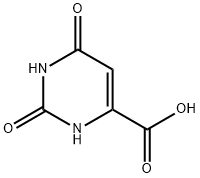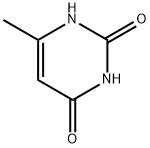Description
Vitamin B13 is a pyrimidine monocarboxylic acid known as a conjugate acid of orotate. It is naturally produced in the human body through a certain mitochondrial enzyme or a cytoplasmic enzyme. During its early days of discovery, Vitamin B13 was considered a component of the Vitamin B complex called Vitamin B13. However, with modern clinical research, Vitamin B13 plays a vital role as a vitamin and mineral carrier; thus, it is no longer considered a vitamin. The compound is medically used to treat liver dysfunction along with Xanthine.
Physical properties
Vitamin B13 is a white crystalline powder.
Uses
Vitamin B13 is a fast-growing health supplement ingredient for its effects in enhancing the absorption of nutrients and promoting weight loss and lean muscle mass development.
Fire Hazard
Flash point data for Vitamin B13 are not available; however, it is probably combustible.
Mechanism of action
Vitamin B13 plays a vital role in several biosynthesis pathways in the human body. It is a mineral carrier for Folic Acid and Vitamin B12. It means that it helps improve the metabolism of the said compounds so that the body may maximize their use. Orotic Acid is also found to be essential in the development of the Central Nervous System. It also helps prevent the rapid degeneration of cardiac muscles among patients who have experienced myocardial infarction.
Physiological effects
Studies show that Vitamin B13 plays a vital role in producing and maintaining ATP levels in body cells. This effect is very important, especially in body organs requiring high amounts of ATP to function, such as the heart and the brain.
Toxicity
Moderately toxic by ingestion, intraperitoneal, and intravenous routes. Mutation data reported. Whenheated to decomposition it emits toxic fumes of NOx.




